Talking about death and dying
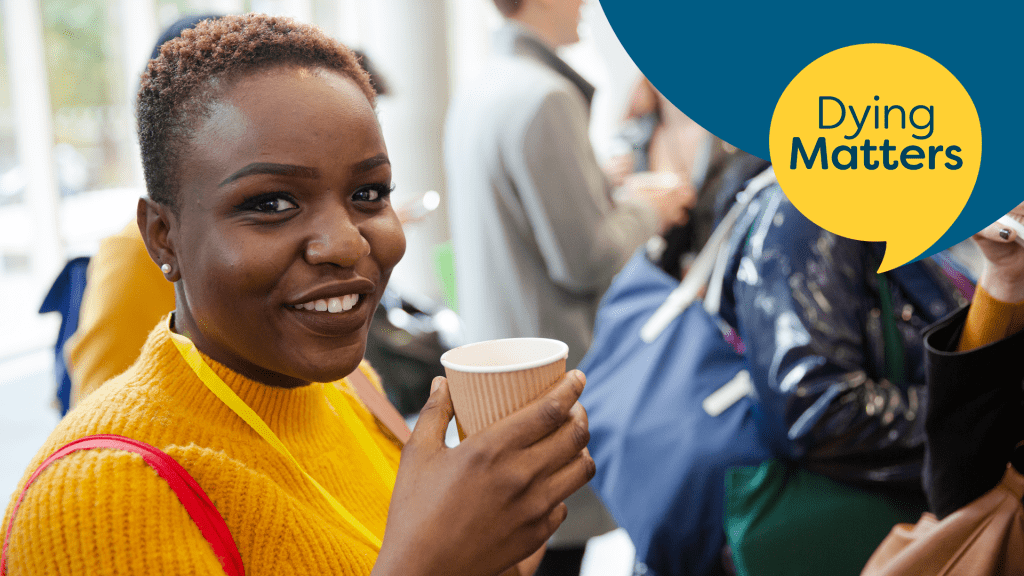
Talking about death and dying can be tough, but honest, timely conversations about death and dying are essential to good end of life care.
Passing away, passing on, falling asleep, departing this world. We use lots of different words to try to avoid talking about death and dying. It’s something that will happen to us all one day, but we are often reluctant to face the facts, so we use other words and phrases to avoid saying the word ‘dying’.
Here at Compton, we’re working hard to help create an open culture in which people are comfortable talking about death, dying and grief.
Every year, people around the UK use Dying Matters Awareness Week as a moment to encourage all communities to get talking in whatever way, shape or form works for them.
Throughout the week, Compton colleagues will be out in the community to offer support in starting those conversations and to share information on planning for the future and our range of specialist services.
- Tuesday 7 May, 10.30am – 2pm, New Cross Hospital outside A&E
- Thursday 9 May, 10.30am – 2pm, New Cross Hospital outside A&E
- Thursday 9 May, 10am – 3.30pm, Codsall Community Hub
- Friday 10 May, 10.30am – 2pm, ASDA Wolverhampton
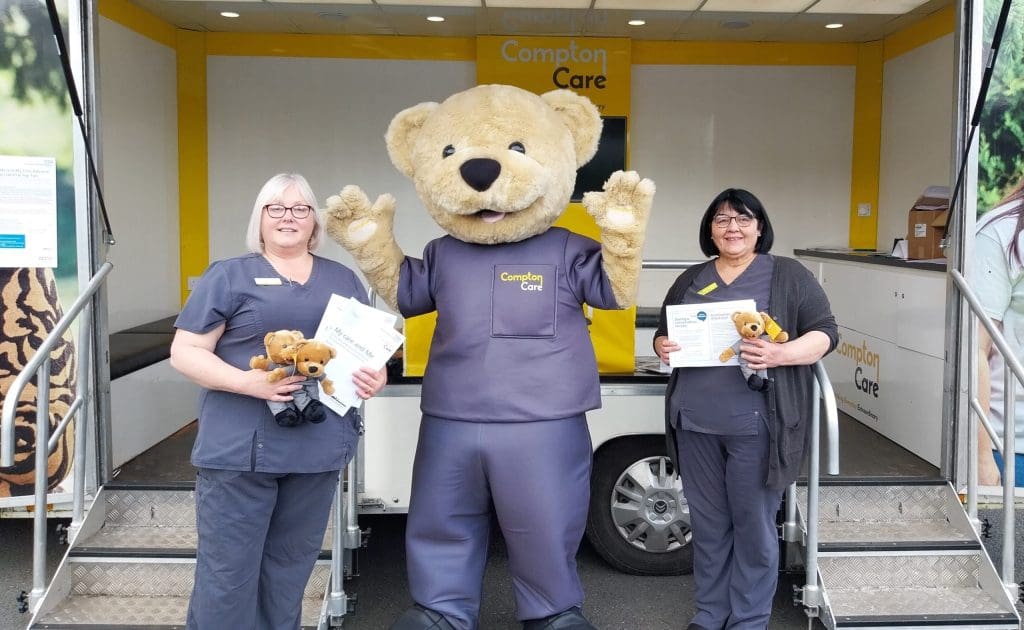
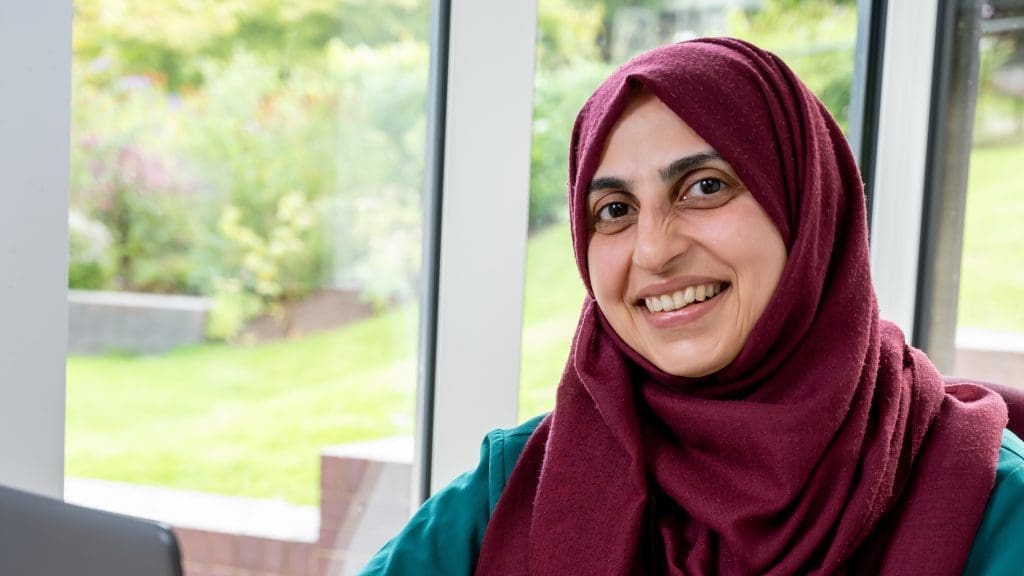
Talking about death and dying can be tough, but there are lots of reasons why it matters to start the conversation. It can help you get to things organised, let the people closest to you know your wishes and make the most of the time you have together.
Talking about death also won’t bring it closer, and lots of families share that it’s a relief to have the conversation and get everything into the open. It can help loved ones cope better with the emotional and practical impact of death.
There’s no perfect way to talk about dying, but there are a few things you can do to make it easier such as choosing the right moment, being honest about how you feel and taking it one step at a time. Whatever you do, remember that no conversation is perfect, but by talking about death you’re helping to make the future easier for everyone.
In this video Compton Care’s Dr Fran Hakkak shares more information to help start conversations about death and dying:
- Why we need to talk about death and dying
- Why it’s important to have those conversations
- Some hints and tips to support conversations with healthcare professionals
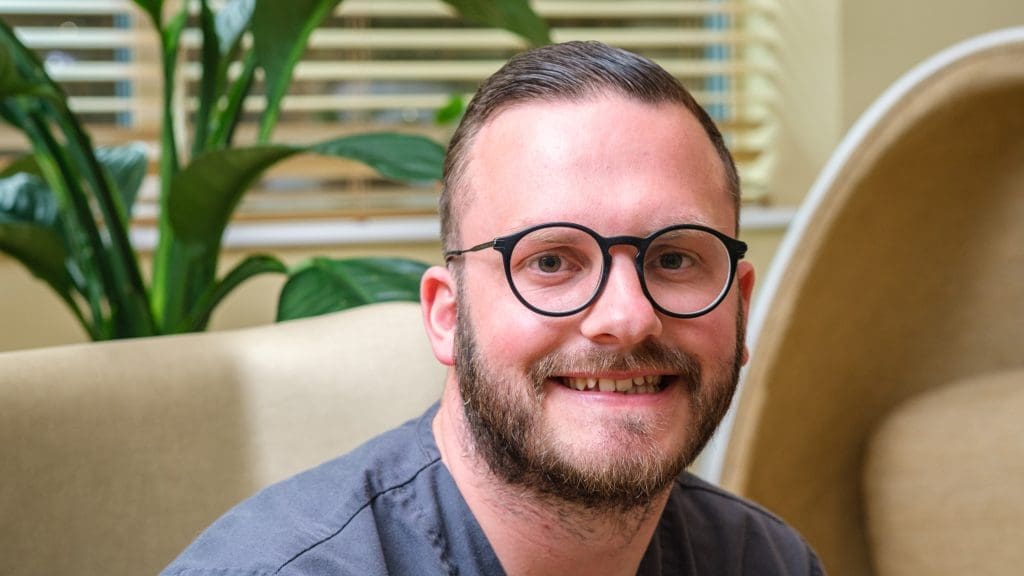
It can seem hard to think about death. But making plans for after your death can help your family and friends.
It can help to plan what you want to happen if you get very ill. You can think about what care you would like. And where you want to be cared for. And if there are treatments you do not want. Planning can help to think about what is most important to you. You should write down your plans and give them to someone you trust. A doctor or nurse can give you a form to write your plans down. It is called an Advance Care Planning form.
You should let your friends and family know about your plans, especially if you want them to help. You should also keep your plans somewhere safe, and let your friends and family know where they are.
In a will you write what you want to happen to your money and your things when you die, and what you want to happen at your funeral. An up-to-date will is the best way to ensure your wishes are followed through and secures the future for the people and causes you love.
Writing a simple will is straightforward. You can get started using packs available from banks, shops and supermarkets. It’s a good idea to then get a solicitor to check your will, to make sure you’ve covered everything.
We have partnered with local solicitors who can help you make your will and donate the cost of making the will back to us at Compton Care.
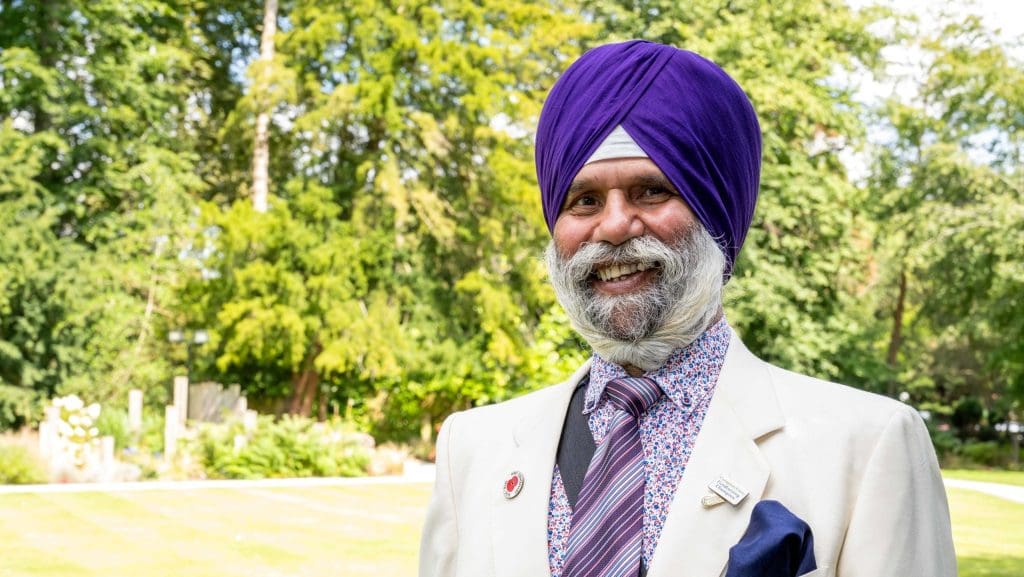
What happens when someone is dying?
This short animation by Emily Downe, and voiced by Dr Kathryn Mannix, guides you gently on a step by step journey through the process of dying.
Acclaimed author, speaker and former palliative care physician, Dr Kathryn Mannix has spent her medical career working with people who have incurable, advanced illnesses. The author of two Sunday Times Bestsellers – With The End in Mind and Listen, Dr Mannix is on a mission to reclaim the public’s understanding of dying.
You can watch the video here.
Advance Care Planning (ACP) Day
Advance Care Planning Day falls on 8 May 2024.
The purpose of this awareness and action day is to highlight the importance of advance care planning and help empower society to make suitable plans for themselves.
You can find further helpful resources about ACP here.
Advance Care Planning – support for members of the South Asian community
Compton Care, in partnership with the Royal Wolverhampton Trust, present a short film which encourages conversation about planning for difficult times in your life.
The Advance Care Planning film is aimed at the South Asian community and can be used by professionals or families of individuals.
You can view the film here.
Advance Care Planning – Information in other languages
My Care and Me. Living well, preparing for the future.
My Care and Me. Living well, preparing for the future.
This document from The Royal Wolverhampton NHS Trust can be printed and completed by an individual or ask your Wolverhampton healthcare professional for a paper copy for you to complete.
Click here to access the form.
ReSPECT – Recommended Summary Plan for Emergency Care and Treatment
The ReSPECT process creates a personalised recommendation for your clinical care in emergency situations where you are not able to make decisions or express your wishes.
You can find more information here.
Dying Matters
Hospice UK’s Dying Matters campaign is working to create an open culture in which we’re comfortable talking about death, dying and grief.
You can find further helpful resources here.
The Black Country Integrated Care Board (ICB)
End of Life Care
The Black Country ICB’s Palliative and End of Life Care page has useful resources to help you and your family talk about death and dying.
You can find them here.
Organ donation
Organ donation is when you decide to give an organ to save or transform the life of someone else.
You can donate some organs while you are alive, and this is called living organ donation.
However, most organ and tissue donations come from people who have died.
For further information about organ donation click here.
